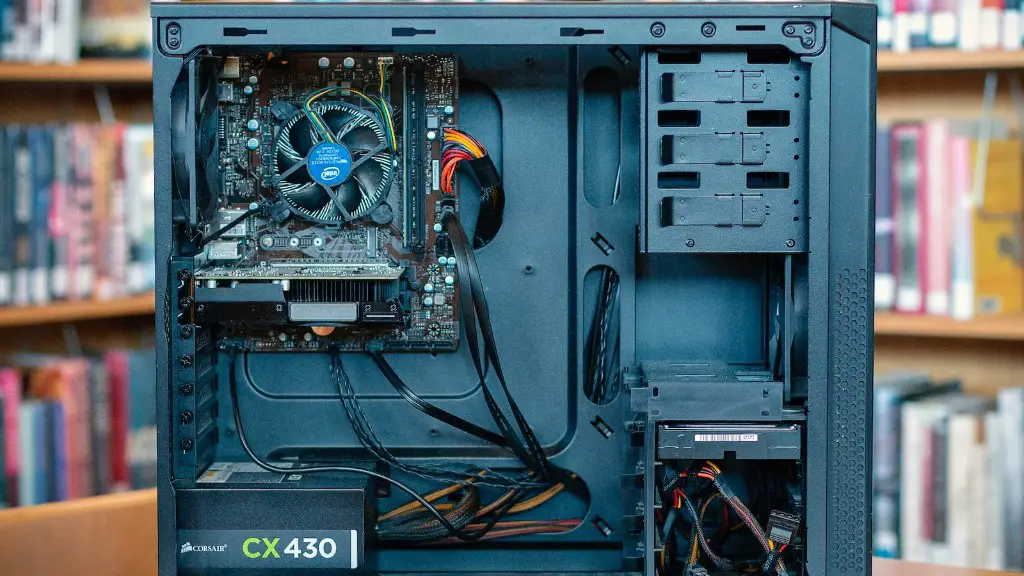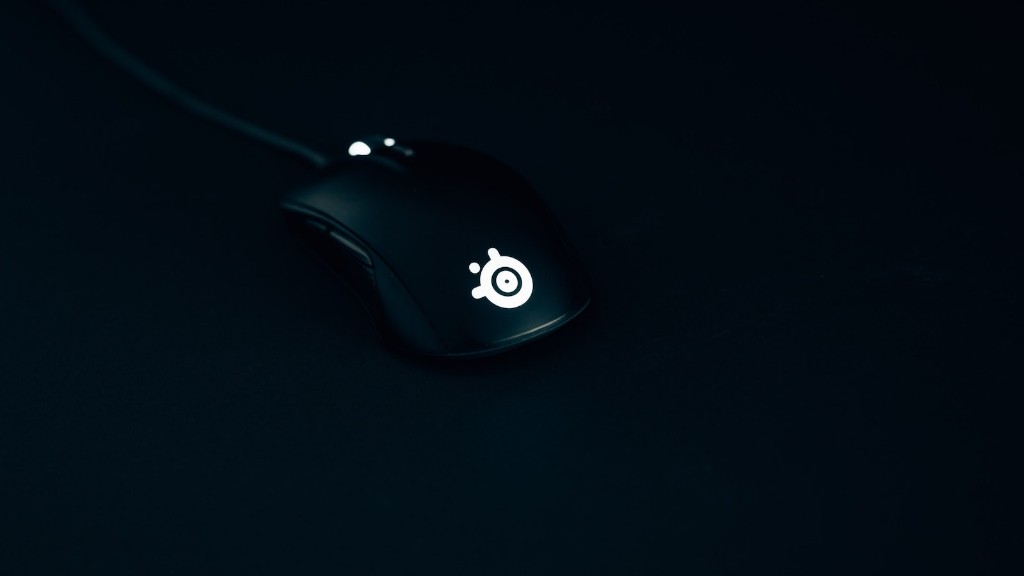The popularity of gaming PC has made it essential that the hardware and specs meet the requirements of the most modern games. This article will explore the basic requirements for a gaming PC and outline some of the best practices for a better gaming experience.
A gaming PC should have, as a minimum, a dedicated graphics card, a fast processor, plenty of RAM and adequate storage. A dedicated graphics card is required to provide the maximum performance for gaming and it should come with dedicated RAM and its own processor. A fast processor is necessary for faster loading times and for smooth gaming. The more RAM and storage, the better, as this will ensure that your system can run multiple games and applications simultaneously. Additionally, it is important to have a motherboard and RAM which are compatible with the CPU.
In order to achieve the highest gaming performance, the graphics card should be chosen according to the type of game and the requirements that come with it. Higher-end graphics cards are generally recommended for more advanced gamers, and lower-end cards are suitable for more casual gamers. It is important to note, however, that having a high-end graphics card does not guarantee good performance. It is also important to consider other components of the system, such as the CPU, RAM and storage.
It is also important to consider the cooling system of the gaming PC. A good cooling system will keep the system from overheating and ensure the optimal performance of the components. A good cooling system should be able to cool down components when they become too hot and should have multiple cooling fans.
The gaming PC should also be connected to a monitor, keyboard and mouse. The display should have a minimum resolution and refresh rate of 1080p and 144Hz respectively. A gaming keyboard should have mechanical keys with N-Key rollover, instead of the standard membrane keyboards, for a better gaming experience. Finally, a gaming mouse should also be chosen with a DPI rating in mind.
In conclusion, a gaming PC should consist of a dedicated graphics card, a fast processor, plenty of RAM, adequate storage and be connected to a monitor, keyboard and mouse. Additionally, the cooling system should be considered and the components should be chosen according to the game’s requirements. With a bit of research and advice, these requirements can be met to create a solid gaming set-up.
What Are The Pros And Cons Of Building A Gaming PC?
Building a gaming PC has many benefits, but it also has its drawbacks. The main advantage of building a gaming PC is that it often yields better performance compared to pre-built gaming PCs. This is because in a DIY PC you are able to pick the components that have the highest performance and are compatible with each other. Additionally, in a custom-built PC the components will be chosen with the gaming performance in mind, rather than cost savings as is often the case with pre-built PCs. Moreover, with a DIY PC you also have the freedom to customize your build and choose the style and color of components that best fits your taste.
On the other hand, there are also some disadvantages to building a gaming PC. One of the main disadvantages is that it requires research and understanding of how components work together. Moreover, there is always a risk of a component issue, which can be more difficult to debug in a custom build. Additionally, building a gaming PC requires more time and effort than a pre-built PC as more components need to be individually installed and configured. Finally, it also requires parts that are usually more expensive than pre-built systems.
In conclusion, building a gaming PC has its benefits, such as improved performance and the ability to customize it. However, it can also have its drawbacks, such as the time, effort and expense it requires. Whether it is worth it or not will depend on the user’s budget, requirements and preferences.
What Is The Best Budget For A Gaming PC?
Deciding the best budget for a gaming PC can be a daunting task. Generally, it is recommended to build a gaming PC with a budget between $500 to $2000, depending on your gaming needs and requirements. In order to decide on the best budget for a gaming PC, it is important to first decide on the purpose of the PC and the types of games that you want to play. For example, if you are looking to play older games, then a lower budget gaming PC might be more suitable, but if you are looking to play the latest and most demanding games, then a higher budget will be needed.
The most important component in a gaming PC is the graphics card, so it is important to spend more of the budget on this component. The processor should also be chosen carefully, depending on the type of games that are going to be played, as well as the other components of the system. Then, the remaining budget should be split between RAM, storage, cooling and peripherals. It is also important to consider the motherboard and its compatibility with the chosen components.
In conclusion, deciding on the best budget for a gaming PC will depend on the purpose and type of games that are to be played. As such, a budget between $500 and $2000 is generally recommended. It is important to prioritize the graphics card and to choose components with adequate performance and compatibility.
What Are The Best Components For A Gaming PC?
Selecting the best components for a gaming PC can be a challenging task. Different components will provide varying levels of performance for different types of games. As such, it is important to choose the components wisely and to be aware of the features and requirements of each component. Generally, the best components for a gaming PC should consist of a dedicated graphics card, a fast processor, enough RAM, and adequate storage.
The graphics card is the most important component for a gaming PC. It should be chosen according to the games and the level of performance required. Generally, higher-end graphics cards are more suitable for gaming, as they will provide better performance. Additionally, it is also important to consider the cooling system, as the graphics card can become very hot when playing games.
The processor should also be chosen according to the type of game being played and the other components of the system, such as the RAM, storage, motherboard and cooling system. Generally, a fast processor is recommended, along with enough RAM and storage to run multiple applications simultaneously. It is also important to ensure that the RAM and storage are compatible with the processor.
Finally, peripherals and other accessories should also be chosen according to the gaming experience. For example, a gaming mouse should have a DPI rating that matches the type of game being played and a gaming keyboard should have mechanical keys. Additionally, a high-quality display should also be chosen with a minimum resolution of 1080p and refresh rate of 144Hz.
In conclusion, the best components for a gaming PC should consist of a dedicated graphics card, a fast processor, adequate RAM, appropriate storage, and peripherals and accessories. It is important to consider the features and requirements of each component, as well as its compatibility with other components, in order to get the best performance out of the system.
How To Customize A Gaming PC?
Customizing a gaming PC offers gamers the opportunity to create a system that is tailored to their specific needs and requirements. To customize a gaming PC, it is important to first decide on a budget, so that the components can be chosen in accordance with it. The common components of a gaming PC are the processor, graphics card, RAM and storage.
The processor is the most important component in a gaming PC and should be chosen wisely, as it will determine the overall performance of the system. Generally, a fast processor is recommended, such as an Intel Core i5 or i7. Additionally, the RAM and storage should also meet the demands of the processor and the games being played.
The graphics card is arguably the most important component for gaming, as it will determine the level of performance for the games being played. Higher-end graphics cards will provide better performance, but must also have a good cooling system, so that it does not overheat or become damaged. Additionally, the motherboard should be chosen with compatibility in mind.
The peripherals and accessories should also be chosen according to the games being played, as well as the user’s preferences. A gaming mouse should have a high DPI rating, while a gaming keyboard should have mechanical keys. Finally, a high-quality display should also be chosen with a minimum resolution of 1080p and refresh rate of 144Hz.
Therefore, customizing a gaming PC requires a lot of research and consideration in order to get the most out of the system. The processor, graphics card, RAM, storage, peripherals and accessories should all be chosen with the demands of the games, as well as the requirements of the user, in mind.


